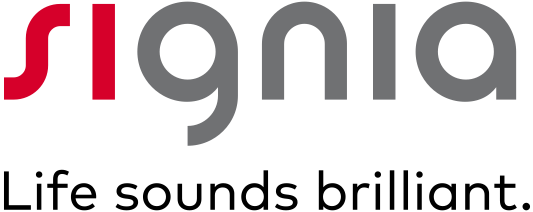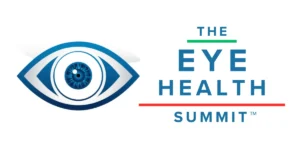 Dr. Eric Branda, Au.D, Ph.D. visits with Mark Alyn to share strategies for preventing and treating hearing loss. He comments on the larger public health implications of this silent epidemic. Plugged in Generation – More than 1.1 billion teenagers and young adults worldwide are at risk of hearing loss, according to the WHO. And according to a 2017 survey by the Centers for Disease Control and Prevention (CDC), nearly 1 in 4 U.S. adults 20-69 years old have Noise-Induced Hearing Loss. Mark talks about his hearing loss and how Signia has helped him.
Dr. Eric Branda, Au.D, Ph.D. visits with Mark Alyn to share strategies for preventing and treating hearing loss. He comments on the larger public health implications of this silent epidemic. Plugged in Generation – More than 1.1 billion teenagers and young adults worldwide are at risk of hearing loss, according to the WHO. And according to a 2017 survey by the Centers for Disease Control and Prevention (CDC), nearly 1 in 4 U.S. adults 20-69 years old have Noise-Induced Hearing Loss. Mark talks about his hearing loss and how Signia has helped him.
World Hearing Day highlights the many unexpected ways our hearing impacts virtually every aspect of our lives, at every age. For example, did you know that:
- People who suffer from hearing loss tend to have a higher likelihood of lower-income and unemployment, according to the NCBI.
- People with hearing loss are more likely to be diagnosed with dementia, according to researchers at Duke University, Johns Hopkins University, and Brandeis University.
- Teens are particularly susceptible to “decibel damage.”Noise-induced hearing loss was mostly seen in the likes of factory workers or military, but now it is a common thread among all ages and backgrounds. Based on their lifestyle, teenagers are especially susceptible to early and cumulative hearing damage.
- Untreated hearing loss can contribute to behaviors that cause isolation and loneliness, and in turn, FOMO aka Fear of Missing Out. This can lead to fatigue, stress, and sleep issues.
- Approximately 38 million Americans suffer from compromised hearing, and most adults wait an average of 5-7 years before seeking help for their hearing loss.
- Hearing Technology Can Help. The latest hearing technology is a far cry from grandpa’s old school hearing aids. Today’s devices are virtually invisible, Bluetooth enabled, and can stream phone calls, music, and TV. The newest devices can even adapt to the users’ environment and movements with acoustic-motion sensors so they can hear what matters most in any situation.
Why this is important.
- At all life stages, communication and good hearing health connect us to each other, our communities, and the world.
- For those who have hearing loss, appropriate and timely interventions can facilitate access to education, employment, and communication.
- Globally, there is a lack of access to interventions to address hearing loss, such as hearing aids.
- Early intervention should be made more widely available through health systems.
Find out more about World Hearing Day here: www.signiausa.com/worldhearingday
Listen to Eric and Mark here:



